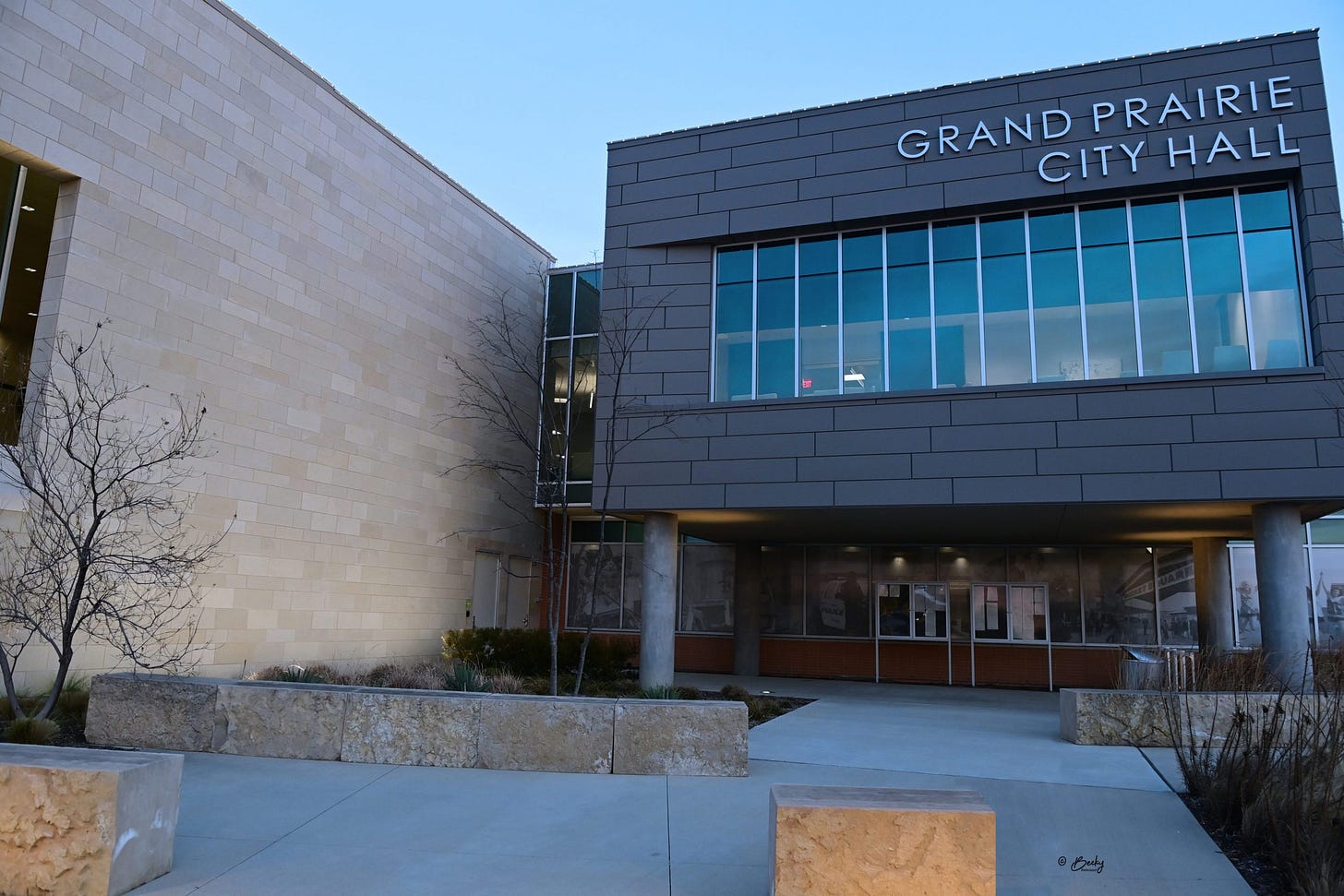Council’s Empty Gesture: When Reprimand Rings Hollow
What does that reprimand even mean when the very councilman being reprimanded is handed the floor, allowed nearly three minutes to address the room, then makes the motion to reprimand himself?
What can really be said about last night’s vote?

But what does that reprimand even mean when the very councilman being reprimanded is handed the floor, allowed nearly three minutes to address the room, and when finished, formally makes the motion to reprimand himself?
The tone for the night was set before the vote even began. Additional security lined the chambers — a quiet acknowledgment that city leadership anticipated heightened emotions from frustrated residents. The room was full, a sign that the community was paying attention.
But when it came time for public comment on Agenda Item #12, the motion for reprimand of Mike Del Bosque, only two speakers approached the podium: longtime resident Angela Luckey and David Collantes, the second man shown in the now-infamous video. Angela Luckey spoke about the need for a city charter provision to address misconduct of this nature—a sentiment that visibly resonated with those present.
David’s remarks followed and were more personal and even more striking. He expressed deep disappointment that it took four months for the council to even address this matter publicly. His testimony was heartfelt, measured, and cut off sharply at the five-minute mark when Mayor Ron Jensen told him his time was up.
Councilman Del Bosque was then given the floor. There was no call for his recusal for the vote. In fact, he delivered his own statement—invoking words like “transparency” and “accountability”—yet the tone was anything but humble, and there was no apology to the man sitting in front of him or to the citizens he’d embarrassed (according to his statement, he’d already apologized in a closed room at a city council briefing in April). He then formally made the motion to reprimand himself, which was immediately seconded by Councilman Kurt Johnson. Mayor Jensen called for the vote. Every council member said “aye.” And with that, the meeting moved briskly to the next agenda item, with that portion of the meeting lasting less than 10 minutes.
The entire exchange felt choreographed: by putting Del Bosque front and center, the council let him “fall on the sword” alone—sparing the others from having to speak—as long as Del Bosque got to do it on his own terms. But it was clear from the start that those on the council neither understood nor appreciated what the citizenry truly wanted.
One might be tempted to feel disappointed that more people didn’t step up to speak. But it wasn’t apathy—people cared deeply. You could feel it in the room. It was as if there was a collective, unspoken decision to stay silent and let the council reveal, through their own actions, exactly how they intended to lead. There was no chaos, no unruly crowd—it was heavier: a palpable loss of respect in the chamber itself and among those watching online.
And it wasn’t directed at one council member. It was directed at all of them. Every person on the council shared in the moment: voting, staying silent, offering nothing beyond a quick “aye” before moving on to the next item of business.
This wasn’t about losing faith in city government or the process itself. The process—the right of the people to speak, to gather, to hold leaders accountable—remains vital. What was lost last night was faith in the people sitting in those seats to honor that process with integrity.
And yet, in that same silence, citizens in attendance showed something telling. By choosing not to disrupt the meeting—by staying calm and letting the proceedings speak for themselves—the public signaled respect for the city and a desire to represent it well, even in disappointment. That quiet restraint stood in sharp contrast to the council’s handling of the moment.
Perhaps most telling: during public comment, the crowd reacted with brief applause—two seconds at most—before the mayor’s gavel came down. “We’re not at a baseball game,” Jensen said, reminding the audience of the rules of decorum. It was one of the clearest signs of the night: both the mayor and the police presence in the room suggested an underlying lack of trust in how citizens would behave—even as the public remained calm. The irony was hard to miss. The council came down harder on the public for two seconds of applause than they did on one of their own for the incident that prompted the reprimand—a quiet double standard of low expectations that hung over the entire exchange.
What lingers now is a question: whether trust in this council can be rebuilt—or whether, in time, new leadership will emerge to meet the expectations last night laid bare.



Very well written. I would say you nailed the sentiment of the public present for the meeting. The room can clap as long as it’s positive information, no clapping if it’s negative in nature towards a council member.